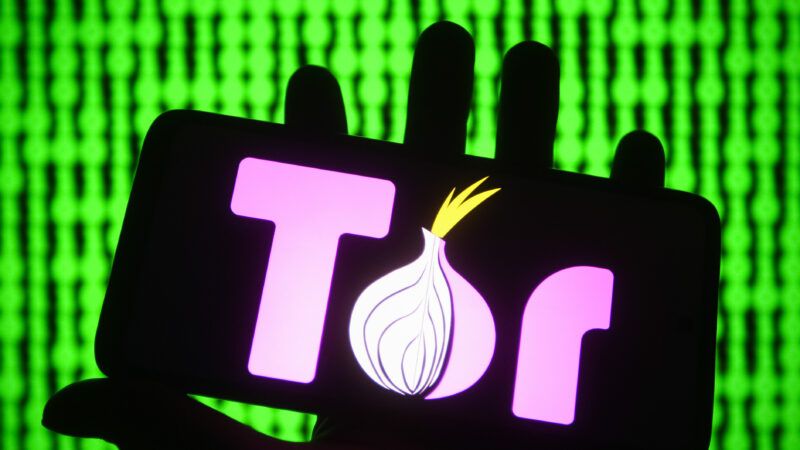State News Networks Embrace Encryption as Russian Censorship Worsens
Plus: Musk rebuffs calls to block Russian news, the curious logic of "Buy American," and more...

Russia's crackdown on information about its Ukraine invasion may prompt some rethinking of anti-encryption positions. Last Friday, Russia announced plans to block Facebook access and enacted a law banning "fake" coverage of the country's invasion of Ukraine. Though pitches as an attempt to ban misinformation, the new law actually prohibits various types of truthful language about Russia's "special military operation," which Russian authorities say should not be called an invasion.
In response to the new law, outside media outlets and tech companies—from CNN to TikTok—said they'll cease operations in Russia or block Russian accounts from posting.
2/ In light of Russia's new 'fake news' law, we have no choice but to suspend livestreaming and new content to our video service while we review the safety implications of this law. Our in-app messaging service will not be affected.
— TikTokComms (@TikTokComms) March 6, 2022
To circumvent such censorship attempts, some outlets are embracing the dark web and encrypted communications. For instance, the BBC is instructing people on how to access its coverage through the privacy-enabling Tor browser or through Psiphon. (Tor reported recently that its use in Russia and Ukraine has been surging.)
The British government has often been hostile to privacy-enabling tech like Tor and encrypted communication. Now the British-government-funded broadcaster is promoting its dark web Ukrainian- and Russian-language sites.
https://twitter.com/mmasnick/status/1499860823694405637?s=21
Meanwhile, the United States' government-owned broadcaster, the Voice of America, has said that it "will continue to promote and support tools and resources that will allow our audiences to bypass any blocking efforts imposed on our sites in Russia." And the U.S.-funded Radio Free Europe/Radio Liberty has "directed people to nthLink, a free VPN service supported by the Open Technology Fund," reports The Washington Post. It "also provided a link to its website on the Tor browser…and encouraged people to join its channel on Telegram, an encrypted messaging platform that Russia tried to ban in 2018."
These are heartening developments. These governments' support for letting ordinary people use private communications may not outlast this particular conflict. But it's another reminder why encrypted communications and cryptocurrency—which has proved similarly useful in aiding people oppressed by Russia—are not just the tools for crime that privacy-hating politicians often make them out to be.
The recent trucker protest in Canada offers another case study. The Canadian government seized money raised for the protesters on crowdfunding sites and threatened to invade protesters' bank accounts. Whether or not you agree with the protesters' cause, it should be frightening to see demonstrators subjected to such overreach. "A financial police state is an effective means for officialdom to muzzle opposition without breaking a sweat," J.D. Tuccille wrote last month.
Decentralized, private communications and transactions are vital ways to circumvent crackdowns and protect people's right to chat, trade, get information, support political causes, and provide aid without government interference.
FREE MINDS
Elon Musk says his Internet service will not block Russian news sources:
Starlink has been told by some governments (not Ukraine) to block Russian news sources. We will not do so unless at gunpoint.
Sorry to be a free speech absolutist.
— Elon Musk (@elonmusk) March 5, 2022
More on Starlink here.
FREE MARKETS
The curious logic of "Buy American":
We cripple the Russian economy by forcing them to buy Russian yet claim to be strengthening our economy by forcing ourselves to buy American.
— New Liberals ???????????? (@CNLiberalism) March 5, 2022
QUICK HITS
• "Russia announced yet another cease-fire and a handful of humanitarian corridors to allow civilians to flee Ukraine starting Monday, although the evacuation routes were mostly leading to Russia and its ally Belarus, drawing withering criticism from Ukraine and others," reports the Associated Press. "The Ukrainian government instead proposed eight routes that would allow civilians to travel to western regions of Ukraine where there is no Russian shelling."
• Dnipro resident Nikolaus Sires talks with Nancy Rommelmann about life on the ground in Ukraine.
• Why was the Food and Drug Administration so slow to warn of possibly tainted baby formula?
• A U.S. trucker's convoy circled Washington, D.C., this weekend. For whatever reason—small size, poor timing, lack of actual disruption—the protest made little splash.
• Virginia's legislature has passed a measure that will allow banks to provide cryptocurrency custody services.
• The new Violence Against Women Act includes some measures to protect women against violence by government actors. The bill addresses the treatment of women in federal prisons and the sexual assault of people in police custody.
• What happened to Hamilton's Pharmacopeia producer Justin Clark? His "death shook many of his friends, not despite his open use of illicit drugs but because of it: Few people they knew were better equipped to understand the effects of such obscure substances," writes Christopher Robbins at Intelligencer.
• "First Amendment Auditors" target libraries.


Show Comments (384)